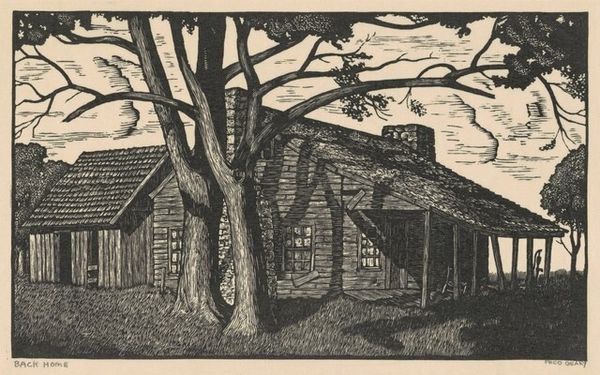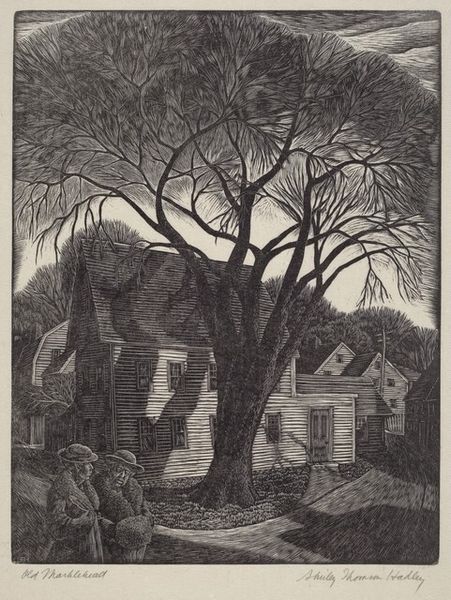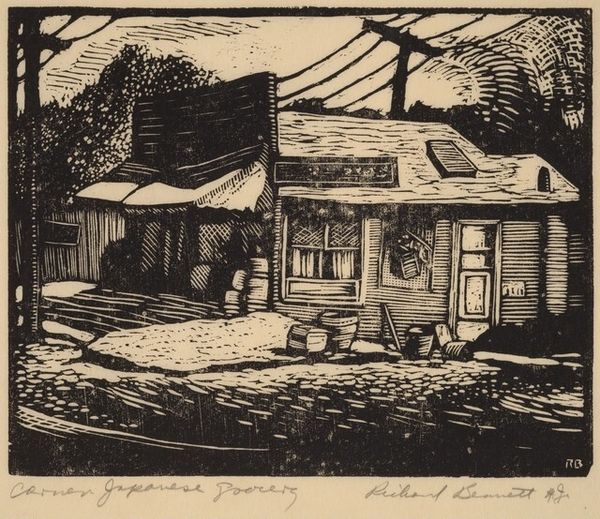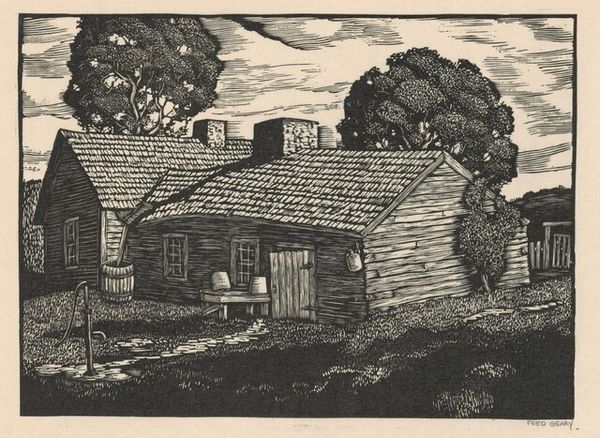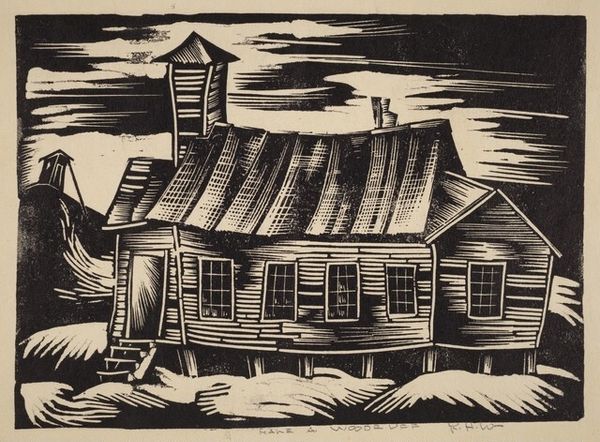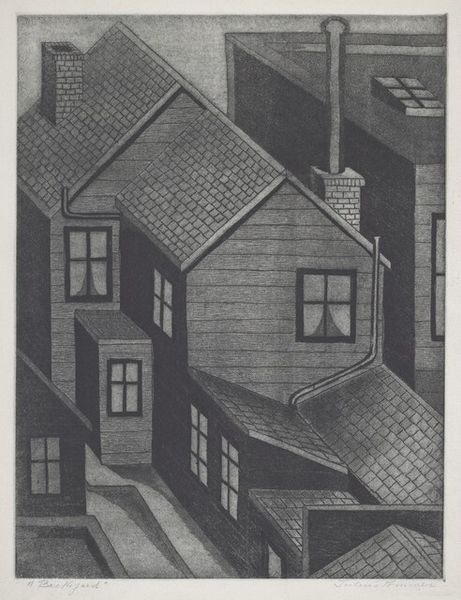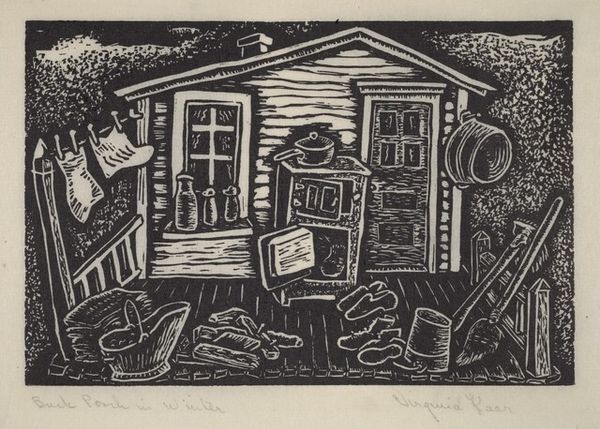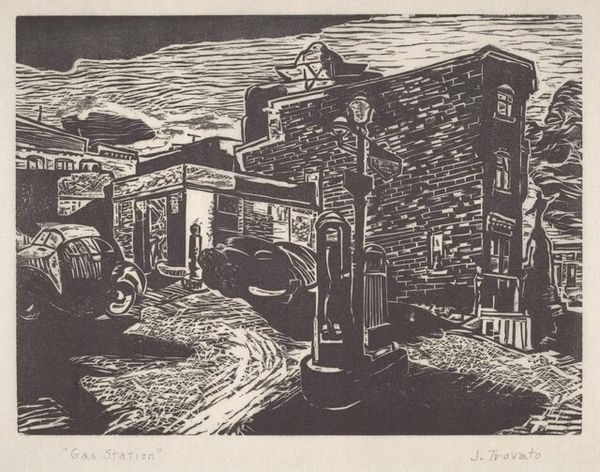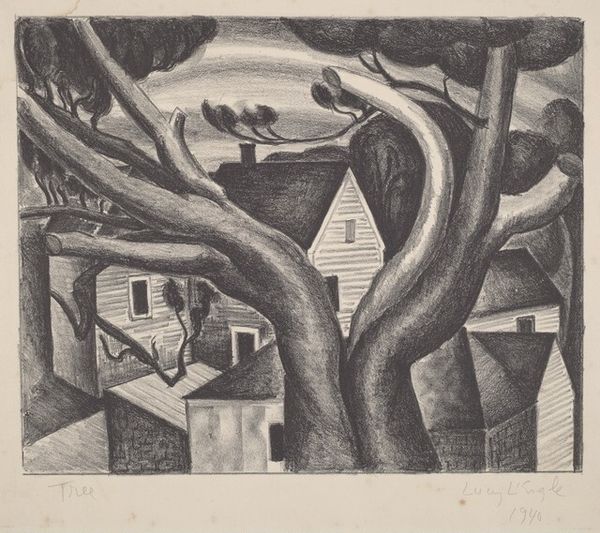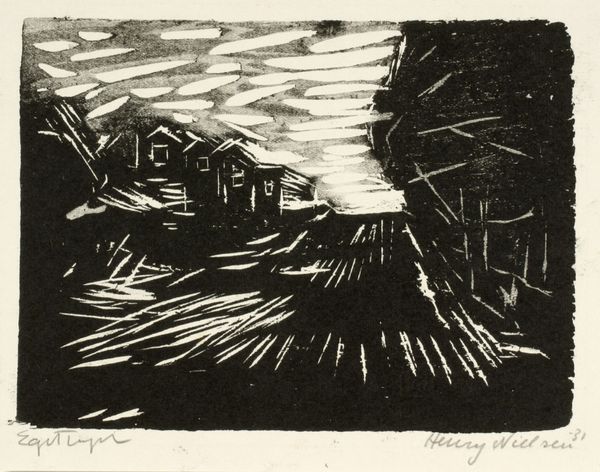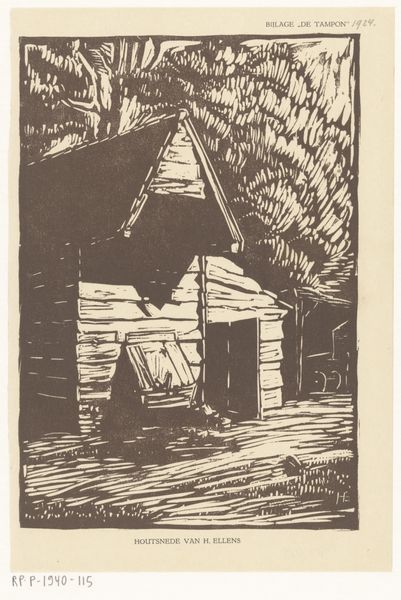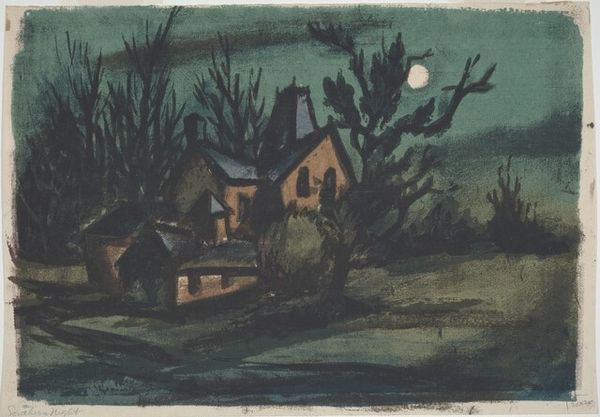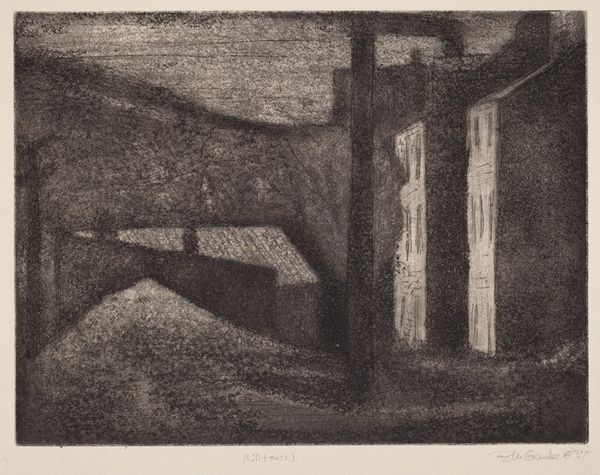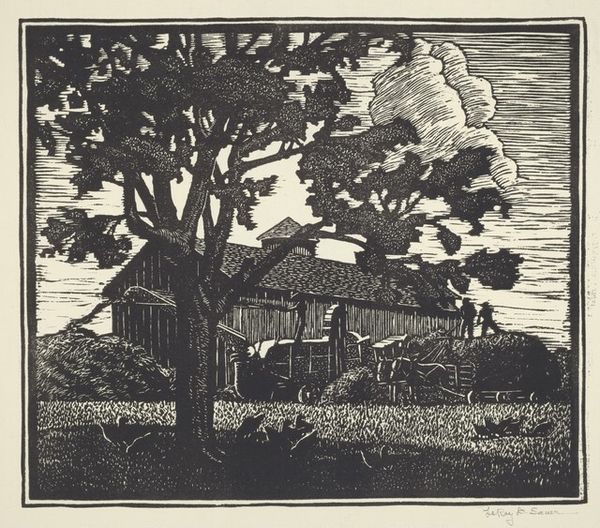
print, woodblock-print
#
ink drawing
# print
#
woodblock-print
#
expressionism
#
cityscape
Dimensions: image: 152 x 203 mm paper: 254 x 327 mm
Copyright: National Gallery of Art: CC0 1.0
Curator: This stark, contrasting woodblock print pulls you in immediately. Editor: It certainly does. My first impression is…unease. There's a ghostly quality to it, like a forgotten roadside stop in a ghost town. What do you make of it? Curator: I see the power of the linework; the stark black and white areas create a compelling dynamism. This is Konrad Cramer's “Untitled (Woodstock Gas Station),” circa 1920. It’s a print, employing the woodblock technique to striking effect. The simplified geometric forms build an essential narrative all on their own. Editor: Given the date, and the setting, this hits differently. Here you have a mundane, newly ubiquitous, pit stop cast in the style of German Expressionism; known for visualizing unrest by depicting jarring images of pre-war urban settings and their resulting traumas. Is this an elegy to an old, simpler way of life about to be left in the dust by roadside commercialization? Is the artist expressing how isolation can persist even through technology? Curator: Or is he captivated by the forms? The composition creates strong vertical thrusts, counterbalanced by the horizontal lines of the roof and the road. The white gas pump is centered, asserting its dominance. I find it compelling that while the print employs a simple binary palette, it contains a nuanced symphony of light and shadow to build depth and structure. It makes use of positive and negative space—the gas station as an image depends upon the dark surroundings, to be defined. The details are stripped to their bare minimum. Editor: Yes, and look closer! Notice how the barren tree to the right, with its stark and brittle-looking limbs, mirrors the harsh geometry of the gas station. It humanizes and juxtaposes this cold image with impending demise. This print reminds us that we have an ecological crisis connected to our need for speed. The image creates a striking portrait of a pivotal moment in our history: when dependence on fossil fuels took root. Curator: Well, I wouldn't have described it as an environmentalist statement; though your point is intriguing. Regardless, the interplay between these representational structures gives us a dynamic and compelling visual experience, offering an important bridge to the modern age through expressive composition. Editor: Yes, its powerful symbolism offers up an entry point to probe society's values at this crossroads of history.
Comments
No comments
Be the first to comment and join the conversation on the ultimate creative platform.
